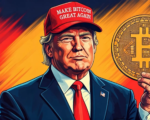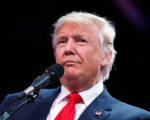The BRICS nations are planning to launch a digital assets platform to facilitate cross-border settlements, a move that has sparked strong criticism from US President-elect Donald Trump. This new initiative aims to reduce the BRICS countries’ reliance on the US dollar, potentially reshaping global trade dynamics. The BRICS group, which originally included Brazil, Russia, India, China, and South Africa, has since expanded to include Iran, Egypt, Ethiopia, and the UAE, further broadening its influence. This platform is seen as a step toward reducing the dominance of the US dollar in international transactions and fostering a more diversified global financial system.
Trump has strongly opposed this initiative, warning the BRICS nations, including India, of serious consequences if they continue to pursue de-dollarisation. Over the weekend, Trump issued a stern warning, suggesting that if the BRICS nations go ahead with their plans, they could face a dramatic 100 percent increase in tariff rates. The US President-elect’s comments reflect his firm stance on maintaining the dollar’s preeminent role in global trade and finance. He made it clear that any attempt to undermine the dollar’s dominance would not be tolerated by the United States.
In a tweet posted on December 1, Trump reiterated his position, stating that the days of the US “standing by” while the BRICS countries move away from the dollar are over. He emphasized that the BRICS nations must commit to not creating a new currency or backing any alternative currency that could challenge the US dollar’s global position. According to Trump, if the BRICS nations do not adhere to these demands, they could face punitive tariffs, which would effectively cut them off from the US market—a significant threat considering the size and importance of the American economy.
Trump’s comments underscore the growing tension between the US and the BRICS nations as they explore ways to reduce their dependence on the dollar. While the digital assets platform is still in the planning stages, it has already drawn attention from global leaders. The move is seen as part of a broader effort by BRICS to assert its economic independence and challenge the longstanding dominance of the US dollar in international trade. However, with Trump’s strong opposition, it remains to be seen how far BRICS will go in pursuing this ambitious financial shift.
















